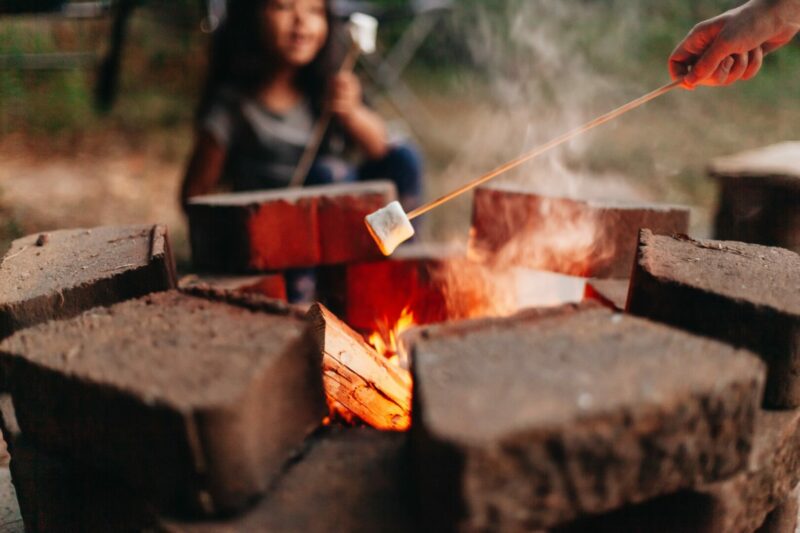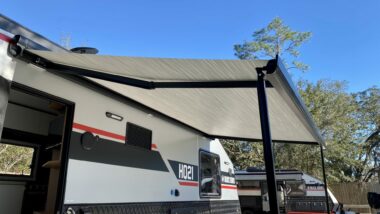Table of Contents Show
Who doesn’t love a good fire while camping? The orange glow and crackling of the wood can set the tone for a perfect evening after a day of adventuring.
However, many campers don’t realize that the camping firewood they use can cause them some major problems. Before you pack for your next camping trip, you need to know a few things about the firewood you bring camping.
Today, we’re sharing everything you need to know about bringing your own camping firewood. Let’s take a look!
About the Organization “Don’t Move Firewood”
Don’t Move Firewood is a campaign to protect North American trees and forests. The campaign strives to bring awareness to the many dangers caused by invasive insects and diseases that typically spread through contaminated firewood.
The campaign launched in 2008 as a partnership between the Grantham Foundation for the Protection of the Environment, The Nature Conservancy, and the United States Forest Service Northeastern Area.
It has grown over the years, and you can spot its educational brochures and posters on campgrounds all across the country.
Visit their website to learn more about the Don’t Move Firewood movement or support their efforts.
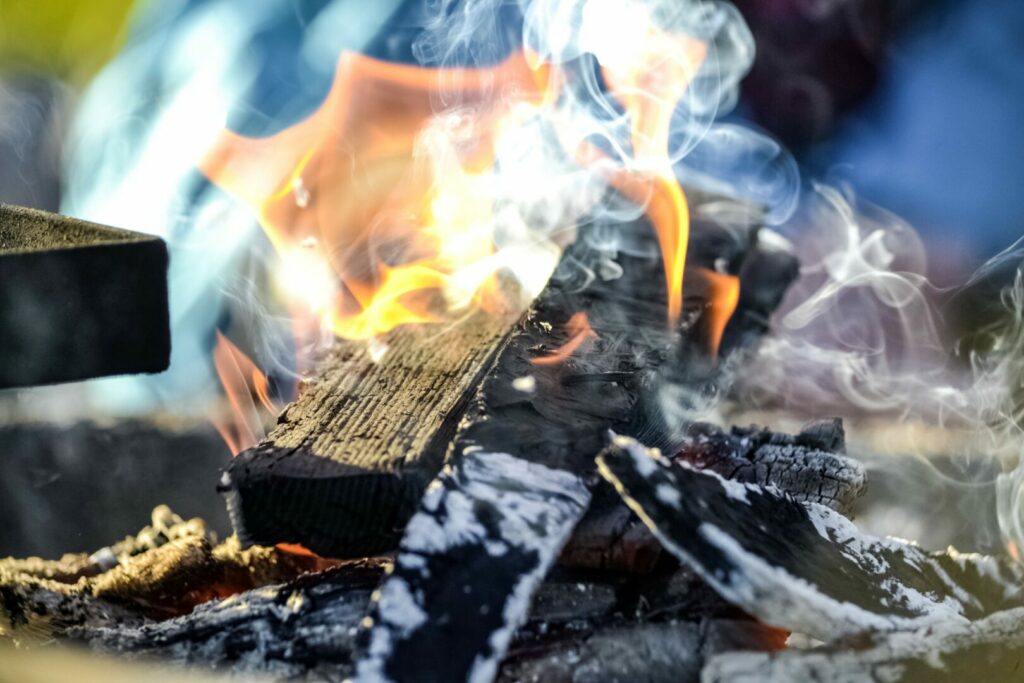
Is It Illegal to Transport Firewood?
When it comes to the legality of transporting firewood, it can get a bit confusing. Some states are stricter than others when it comes to moving firewood.
Some of the strictest states in the country include Minnesota, Michigan, Wisconsin, Illinois, Ohio, Kentucky, Maryland, and Indiana. If you plan to spend time camping in these areas, you’ll want to make sure you brush up on their firewood requirements.
Officials may issue a quarantine of firewood from an area after discovering invasive plants or insects.
Local and campground officials often require campers in these areas to purchase pre-treated wood that’s safe to use.
Why You Shouldn’t Move Camping Firewood
While it may be frustrating, there are a few reasons why you should avoid moving camping firewood. Let’s look at the logic behind this movement!
Spread Invasive Species
Camping firewood can contain invasive species, whether you can see them or not. The Emerald ash borer, erythrina gall wasp, and the larger pine shoot beetle are just a few invasive species that can spread through moving camping firewood.
These tiny insects can work their way through forests and cause tremendous destruction.
When you move campfire wood while camping, you may be unknowingly bringing these unwanted hitchhikers with you.
Don’t Move Firewood provides a list of invasive species. They also provide a tremendous amount of information regarding the diseases and destruction of each species.
Learning about the impact of these species can help you see the importance of not moving firewood.
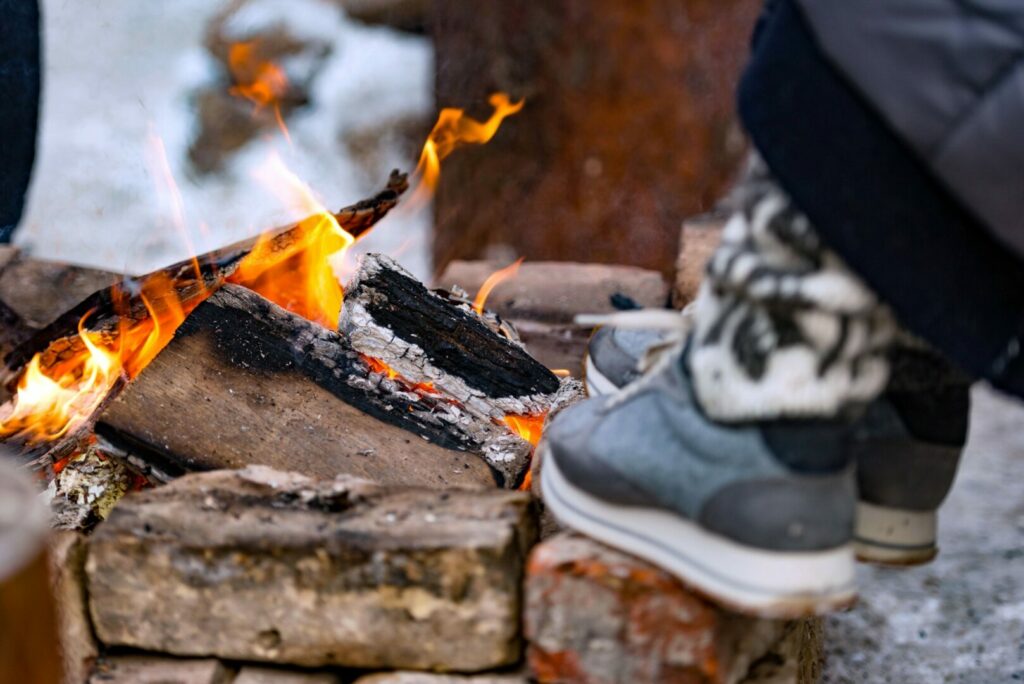
Disrupt the Ecosystem
It’s easy to underestimate the impact we humans can have on the fragile ecosystem around us. The simple act of moving firewood can quickly disrupt the ecosystem.
A tiny insect or diseased wood can spread from one tree to another. The delicate balance of an ecosystem can quickly change when you introduce a disease or species that shouldn’t be there.
When plants, animals, and insects die, you eliminate the food and homes for the many animals and insects that depend on each other to survive.
It can take some time to discover an infestation has occurred, and the destructive process has already begun by the time officials can take action.
Pro Tip: Did you know you could change the color of your campfire? Check out these 5 Awesome Ways to Change the Color of Your Campfire!
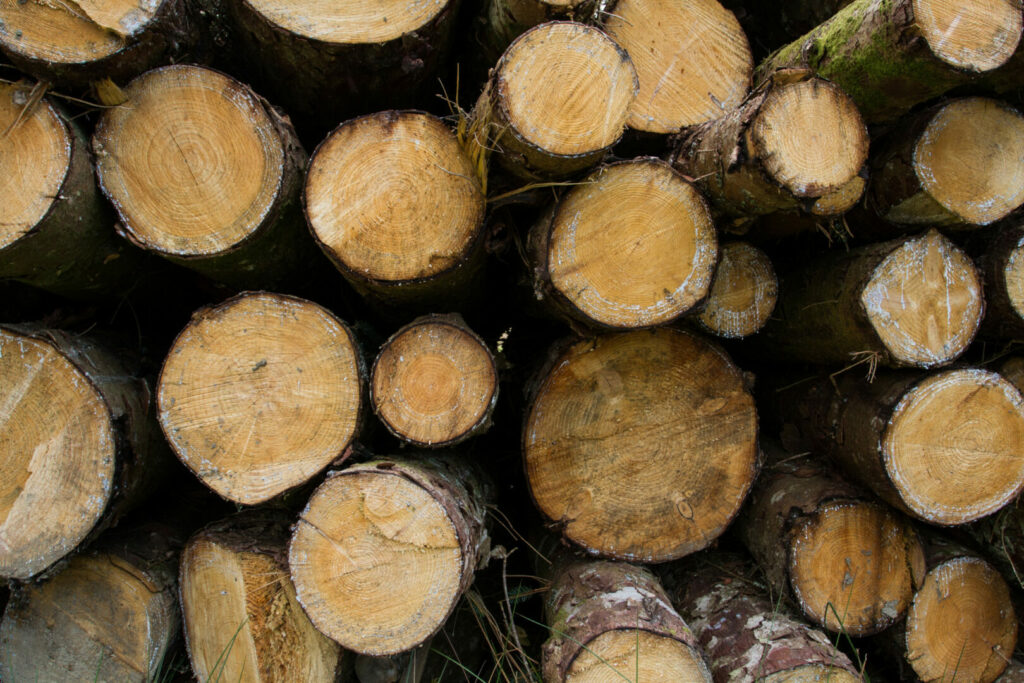
How Far Is Too Far to Move Campfire Wood?
Officials typically recommend that you don’t travel more than 50 miles with campfire wood but often prefer campers stick to less than 10 miles.
They also recommend purchasing firewood when you arrive at a campground or inquiring about locally approved firewood options with camp hosts.
You can often find many homeowners and small local businesses that offer camping firewood for sale. These may be delivery services or roadside stands that use the honor system for payment.
How Do You Get Firewood When Camping?
Getting firewood when camping isn’t all that difficult. Campgrounds will often have firewood for sale inside the campground.
When you purchase this firewood, you can have confidence that it is safe to use while camping. However, you’re likely going to pay a premium price for the convenience of buying it from them.
In areas where camping is popular, you can often find homeowners and businesses that offer firewood for sale. Prices and the size of bundles will often vary, but this can be a great way to support the local community and a small business.
However, before buying firewood outside the campground, familiarize yourself with the campground’s rules for bringing firewood into the park.
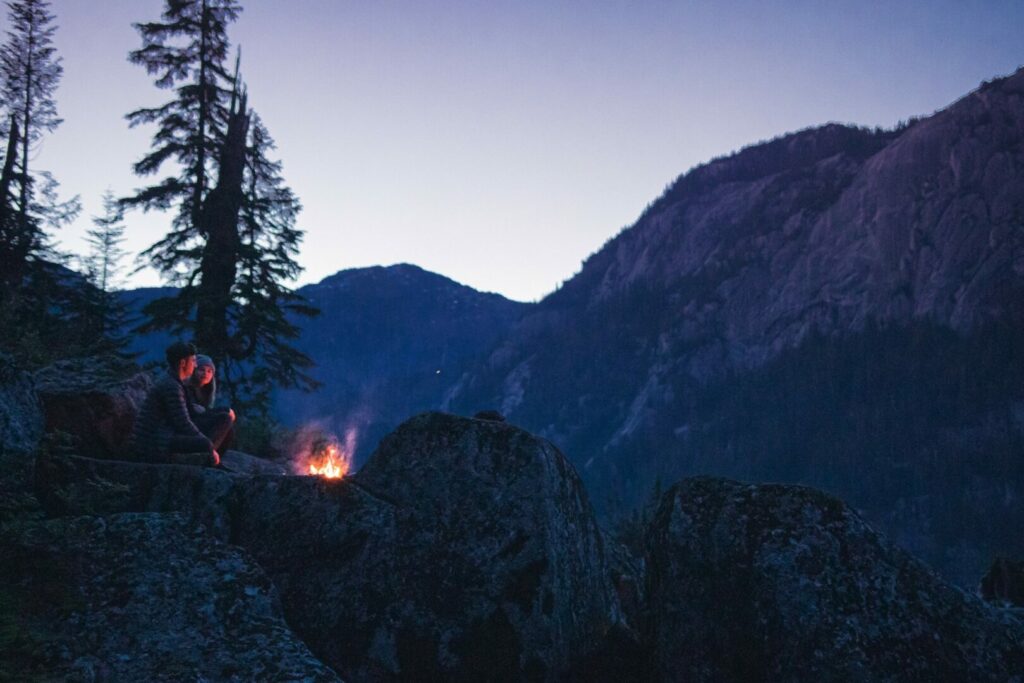
How Do I Know Where My Firewood Came From?
If you’re buying a bundle of firewood from a vendor, it will likely come with a label that indicates it was harvested locally.
Some campgrounds may request to see your firewood, and you’ll want to be able to show them this label. However, you may not always buy from an official vendor.
When buying your camping firewood, you’ll want to confirm that they harvested it locally. However, if they live locally, they have a vested interest in protecting their local trees and forests.
Keep in Mind: Start up your campfire with these 5 Campfire Starter Kits That Actually Work!
How Can I Responsibly Bring Firewood Camping?
The key to responsibly bringing firewood camping is to limit the distance you’re traveling with it. There’s likely no need to worry if you’re planning to camp at a local campground.
However, if your trip is over 50 miles away or the campground has strict requirements for firewood, you’ll want to buy it once you get to the campground.
While you may not save any money by purchasing firewood at the camp store, you must remember that firewood is very heavy.
A weekend’s worth of firewood can be incredibly heavy, and vehicles tend to get worse fuel economy the heavier they are.
Camp Responsibly With Local Firewood
Trees don’t grow quickly, so we must do all we can to protect them. Campgrounds and forests recovering from a disease or invasive species can take decades.
In some instances, officials have no other option other than cutting down and destroying trees to stop the spreading. This can ruin the natural environment for many wanting to enjoy it for generations.
If you’re planning to camp, please do so responsibly!




